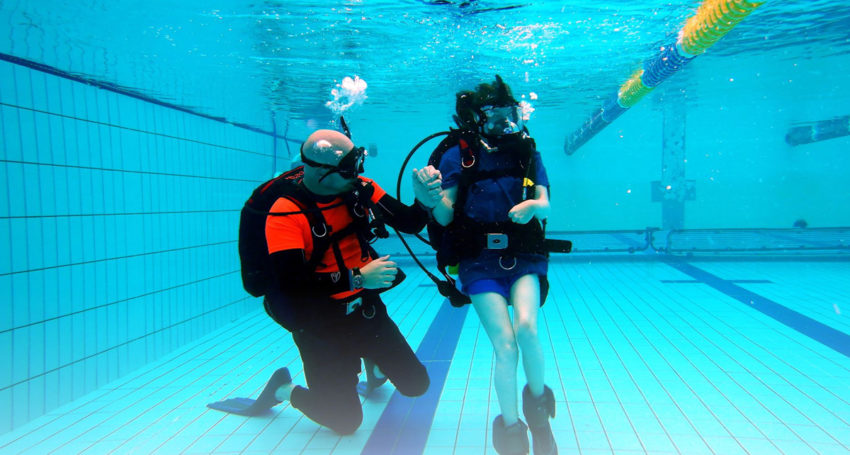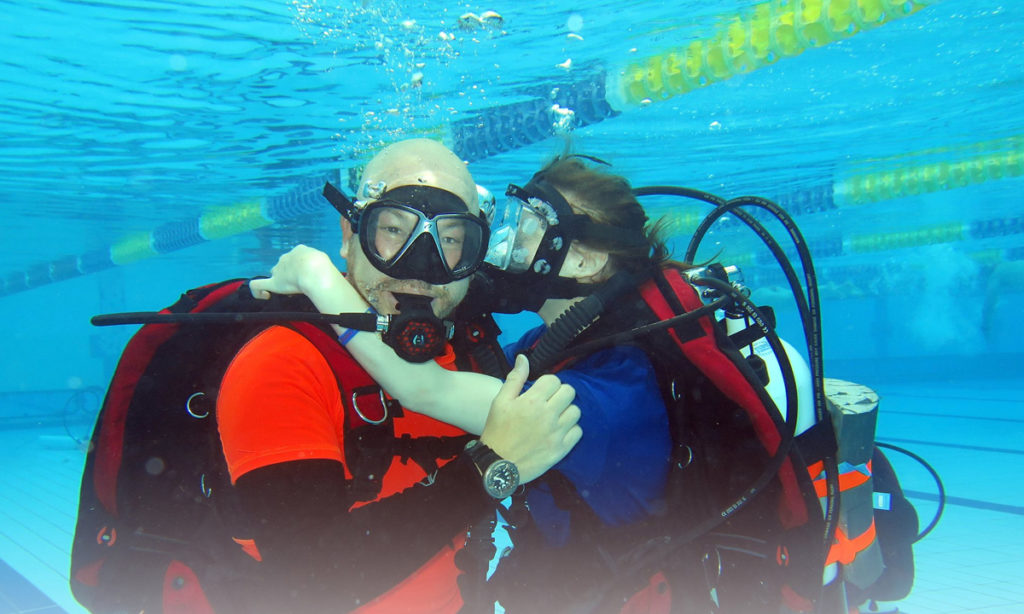‘World-first’ underwater therapy makes splash with Australian rollout
Health & Medical
A unique therapy technique that is helping participants walk underwater is set to launch in Sydney and Melbourne.

Sign up to receive notifications about new stories in this category.
Thank you for subscribing to story notifications.

The Immersion Therapy service, believed to be a world first, has been achieving excellent results since it began in South Australia last year.
Available on the National Disability Insurance Scheme (NDIS), the service was started in Adelaide and Port Lincoln by Peter Wilson to offer freedom of movement within a weightless environment for a range of clients including people living with spinal cord injuries, amputations, acquired brain injuries and autism.
Participants use specialised scuba equipment to breathe underwater in a swimming pool, using the weightlessness to regain confidence and build muscle strength. Pain relief and increased mobility are also often experienced.
Wilson plans to roll out the service nationally and will travel to Melbourne and Sydney in the coming weeks to speak with prospective clients and instructors.
“We’ve got individuals in those states who are interested in participating and also being part of the service delivery,” Wilson said.
Wilson was seriously injured in a motorbike accident in 2007 leading to a long and ongoing period of rehabilitation. He took up scuba diving and was inspired to develop a therapy using some of the equipment after discovering the benefits of underwater weightlessness.
He started Determined2 in mid-2015 and spent several months working with leading Adelaide doctors on the program and gaining various accreditations before beginning the Immersion Therapy service at the Adelaide Aquatic Centre in March 2016. Wilson has run almost 2000 sessions with 200 clients, including some who fly to Adelaide from interstate specifically to access the therapy.

Determined2’s John Przybylo (left) with a client at Adelaide Aquatic Centre.
Determined2 won the National Disability Awards’ Excellence in Inclusive Service Delivery last year.
Wilson said the principles behind how the service was delivered, the ability to separate it from recreational scuba diving and the specific medical standards and operational guidelines made the therapy a world first.
“I wanted it to be like nothing else that had been offered before and I knew to do that I would need high level doctor involvement,” he said.
“Some of the results have been incredible – there are some people who are full-time wheelchair users on land but underwater without gravity they are able to stand and walk.
“People are able to move in a way they’ve never been able to move before.”
The University of South Australia will conduct an evidence-based research study into the benefits of Immersion Therapy next year thanks to funding from the Lifetime Support Authority.
Program Director for Clinical Exercise Physiology at UniSA Dr Kade Davison said a lot of thought has gone into how to best capture the benefits from a scientific standpoint.
“It’s clear that the participants are getting benefits but the challenge for us is because the client base is so diverse in their medical history how do we measure what the benefits are because the benefits are quite different for each person,” he said.
“What Peter has set up is such a unique therapeutic approach and anecdotally it seems to be having really amazing outcomes but some of the funding bodies need more rigorous evidence.
“So we’ve come on board to try to put some rigour around evaluating what the outcomes are and providing the research evidence that validates what they are seeing anecdotally.”
Wilson said Immersion Therapy was designed to complement existing therapies, not replace them.
“The fact that people are underwater and moving against resistance, every movement they make means they are building strength in those muscles by doing it.
“It’s also just the joy people get from our service – generally people’s wellbeing is significantly increased. A lot of people on pain medication have been able to reduce their medication, people on medication for depression or anxiety are able to either stop those altogether or heavily reduce them.”
Jump to next article



